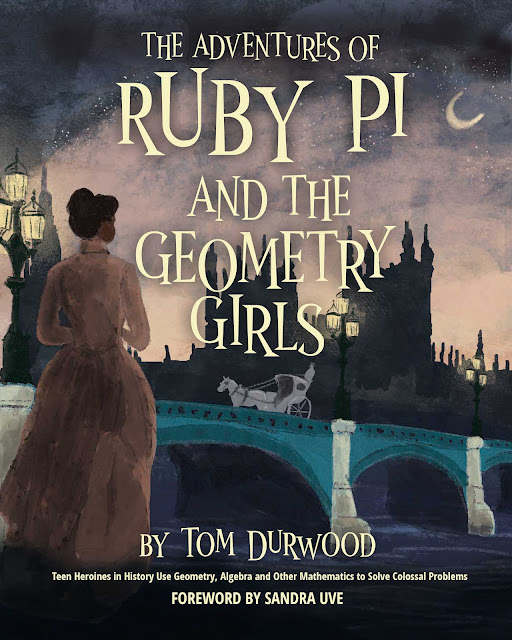The Reverend Visits
1. ON TALLAHASSEE STREET
The most basic question is not what is best,
but who shall decide what is best.
– Thomas Sewell
The housing units for Tyndall Air Force Base, the Florida panhandle home to the 325th Operations Group, were well- equipped with dishwashers and refrigerators and televisions and air conditioning – all the modern conveniences promised in the World War.
On an E-5 salary, Staff Sergeant Saginaw Smith, valued member of the Second Fighter Interceptor Squadron, had provided well for his family.
Right now, the Sergeant stood at the bay window in the carpeted living room of his home. He was using a military-issue pair of binoculars, leather lash around his neck, to scan the street and, beyond, the flat Florida vista.
“Quit watching, Daddy. Come have a lemonade.”
Jimmy Davis and the Twibell boys were playing street hockey out front. Several neighborhood girls on bicycles circled the action. One of them was singing that old song, “At the Hop.”
“Two hours late,” he chided. “These big-city Negroes ...”
“They’re not coming,” said Shawnee. “I’m almost happy. I’ve been all nervous about it anyway.”
“Hold your horses now, girl. Here’s someone … ”
A ’62 Chevrolet Bel Air approached, turning onto Tallahassee Street. The car drove past the youth center, slowed down for the hockey game, and kept going past the Smith household.
“Nope,” said the Sergeant.
Shawnee and Cissy played cards without enthusiasm in the dining room.
The card game changed from Crazy Eights to Slap Jack.
The distinctive drone of a fighter rose from outside. Torquing engines grew from a background noise to a roar, right overhead.
“F-84 Escorts,” called the Sergeant. “Big shots. Too slow for the damn MIGS, though. Those swept wings …”
Now he saw two 1958 Plymouth Club Coupes, big and clunky and ugly, making their way up Tallahassee Street. .
The duo cruised cautiously up the street. They stopped to ask directions from Jimmy Davis. He pointed to the Smith house.
The two cars approached and, tires crunching gravel, turned into the Smith driveway.
“Our guests have arrived,” the Sergeant announced.
2. LEMONADE
The best idea always wins.
-- Matthew Weiner
Four Negro men and two Negro women stepped through the screen door and into the carpeted living room. Heads bobbed and hands shook.
Sergeant Smith held the screen door open as they entered.
“Come on in.
“Master Sergeant Saginaw Smith, Second Fighter Squadron,” Shawnee’s father said.
“This here is my neighbor, Cissy Thomas.”
Introductions were made.
“And this here is my daughter. Shawnee. She’s the one you come to see …”
In the center of the living room… sat a composed girl, all of fourteen.
She rose from her wheelchair and balanced on the leg braces.
Gawky on the way up, she stood tall and straight.
One of the women stepped forward. “Margery Rustin.”
“Shawnee,” said Margery Rustin. “We have come a long way to meet you.”
Cissy handed out glasses of lemonade from two silver trays.
“Martin,” said Margery Rustin.
The others stepped aside to make way.
A man in his late thirties stepped forward.
He wore a dark suit, despite the summer heat. He held a hat in his left hand.
He extended his right hand.
“Martin Luther King, Jr., Miss Smith. Very pleased to meet you.” His eyes were wide-set and kind.
Shawnee could not curtsy, or even bow, not much anyway, without risking her posture, with her leg-braces and crutches and all.
So she nodded her head in a most welcoming manner.
She shook hands warmly with her guest.
The quality of the girl’s smile upon holding the hand of the Reverend King made all else secondary.
3. THE CHALLENGE
Gold is its own country.
-- Matthew Hart
“Professor Jamison of Florida Atlantic speaks so highly of you, Shawnee,” said Margery Rustin when they were all seated.
“He urged us to make time. He seemed most genuine.”
A heavy-set man, Jules Telford, sat forward on the green stiffed chair where the Sergeant often sat.
Glasses of lemonade were refilled from the pitcher on the silver platter.
“We detoured from Miami.
“We are anxious to learn of this mysterious equation in your letter.
GNNP = pop. (@11 % ) @11% + capital growth % - OC
And what you meant by the phrase ‘Gross Negro National Product.’”
Shawnee set aside her notes.
“Yes, ma’am. I mean the Black American economy. Its dimensions and its changing nature, year over year.”
“You have calculated that?”
“Yessir. You’ll see the charts. And we believe we have a method to dramatically increase that number.”
Jules Telford grunted.
The fan overhead whirred quietly, augmenting the air conditioning unit in the window.
“It’s just that you all have worked so hard,” continued Shawnee, “to gain rights from Congress for our people, when the truth is,” she took a napkin to swipe beads of moisture which had appeared on the silver platter.
“The truth is that the Negro Nation,” she said, “does not need any help. We can do fine on our own. Economically.”
She smoothed her skirt.
Her father nodded his head.
“Mine is a mighty God,” said Cissy softly, crushing the paper in her hand.









No comments:
Post a Comment